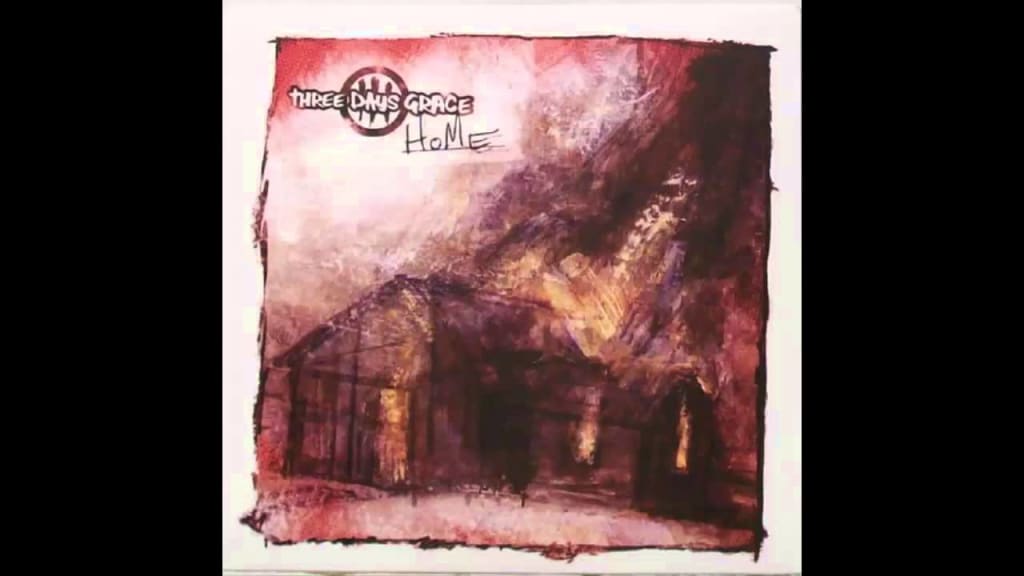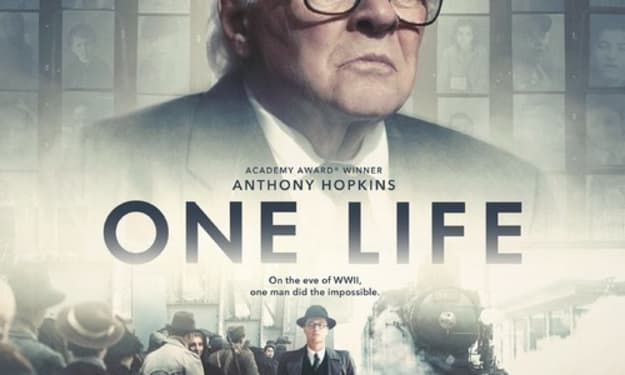"Home" Is Where the Art Is
A testimonial about the impact of the single "Home" by the post-grunge band Three Days Grace

The perfect parent doesn’t exist. There will never be a guardian with flawless parenting or the supernatural sense of knowing exactly what their children need all the time. However, every parent and child will come to experience the bittersweet fact of life called pain. Pain echoes in the hearts of the emotionally neglected with a perfect resonance that could bond them or break them. It transforms our relationships with one another and our relationship with life. That echo has reverberated for generations. In my time, the echo thrust into me through the song “Home” by Three Days Grace and it not only woke me to the pain I didn’t understand or know how to express, but also acted as my personal catalyst for self-expression and retrospection through the arts and friendship.
As a 90s kid, I can’t tell you exactly where I was when I first heard the song that changed my life, but my best guess is that I was where most teens were back then: Watching TV as time passed by. Friends from middle school introduced me to a few hard rock bands and I soon became obsessed with music videos. I would binge watch rock videos on FuseTV and was eventually introduced to “Home” and its unforgettable music video. That song woke me from my catatonic mentality as the pastor’s kid and over-achieving golden child.
The obtrusive booming of the drums and aggressive riffs from the electric guitars ripped through my numbness immediately. Adam Gontier, the vocalist of the band, sang the resounding truths of that familiar parental pressure that is so easily absorbed but difficult to describe when you’re young, the paradoxical presence and absence of the parent providing genuine security at first, then an authoritarian ruling later as you watch the security gifted to you transform into a prison. Finally, acknowledgment for the pain buried under the demands for blind obedience and respect without mutual understanding and getting over emotional dilemmas for the good of the family. Finally, someone was screaming for me, screaming the way I would if I wasn’t suffocated by the fear of punishment and shame:
“I’ll be coming home just to be alone,”
“I know you’re not there, and I know that you don’t care,”
“No matter how hard I try, you’re never satisfied,”
“You always disappear, even when you’re here,”
“By the time you come home, I’m already stoned,”
“I can hardly wait ‘til you get off my case,”
It’s easy to dismiss the confusion and anger toward this situation if you believe the stereotypes about teenagers and even more so when they’re fed to you early in life as “sins”. Sinful or not, “Home” was speaking to me about me, something vaguely addressed by those who only hoped I'd get past my pain so they could move on. Quickly, I learned that no one was obligated to address my emotional needs and the reason for that wasn’t because there wasn’t any love, but because of other inaccurate stereotypes passed down through the generations on emotional and mental health. Those views were more oppressive and harmful than empowering, another point that “Home” expressed, specifically the lyric, "I know you're not there," when Adam gestures toward his head.
Not many teenagers would dare to address the unfairness of the parenting they were under knowing the consequences; I certainly wasn’t that brave, but I was able to talk with my fellow rockers at school. I’d mentioned Three Days Grace as one of my favorite bands in middle and high school while hiding burned CDs from my parents (because when my Evanescence CD was forcibly taken, my hiding skills improved tremendously). Friendships started over the conundrum that was parenting. We became budding psychologists decked in black, hating the world our parents grew up in and hating our world even more. We had one another to remind ourselves how beautiful it was that the psychological pain we were damned to suffer wasn’t suffered alone. Under that view, the echo from “Home” became more than an inspirational scream; it was a call to action. The call to abandon ourselves to artistic outlets and allowing them to shape us into the soulful warriors we are today fighting against the emotional repression our parents passed down to us whether they intended to or not. We refused to accept being called “too dramatic,” “too intense,” “too much,” as an insult. We knew drama and intensity was essential to the artistic process.

If the drums weren’t slammed from beginning to end as guitar riffs ripped through my numbness and poured that broken-home rawness through the lyrics and onto my heart, I wouldn’t be the same person. If “Home” was an ocean, I’d let myself drown, but it’s not the kind of song that encourages submission. This song beckons vulnerability. It summons inner truth and commands it be screamed. The music video itself shows the lead singer yelling and breaking windows while a goth girl screams and bashes in the “home” she’s trapped in with a metal bat and lets ebony liquid pour out of her mouth as if all the poison from the emotional repression she swallowed before was forced to exit her now that she embraced her truth. Even though the girl never escapes from her home-like prison, the song ultimately drives the point that it’s release that keeps us alive and human, not repression.
Today, I am a writer, musician, and developing sketch artist who is still learning how to let my pain take the lead on my creative projects and I’m determined to live a life of art full-time. Three Days Grace was an excellent model to reference, their first and most impactful lesson being “Home”. If this song wasn't in my life, I could only imagine my desires still muted by unreachable expectations, being confused about who I was in my own home when I already felt like what I did and who I was wasn’t enough, conjuring shame, and even with a roof over my head, food in my belly, a charter school education, early college opportunities, a church family, and middle-class parents raising my brother and I the way they believed was best, I still wouldn’t know how to describe what home meant to me. I’m happy to say I don’t live in that reality; home is where creating and receiving art as an unrelenting release of emotion makes one’s desire to love and accept life more powerful.
Thanks for Reading
Feel free to tell me what this song means to you if you're a rocker too. Reach me on my blog, Twitter, Facebook, Instagram, and Tumblr.






Comments
There are no comments for this story
Be the first to respond and start the conversation.